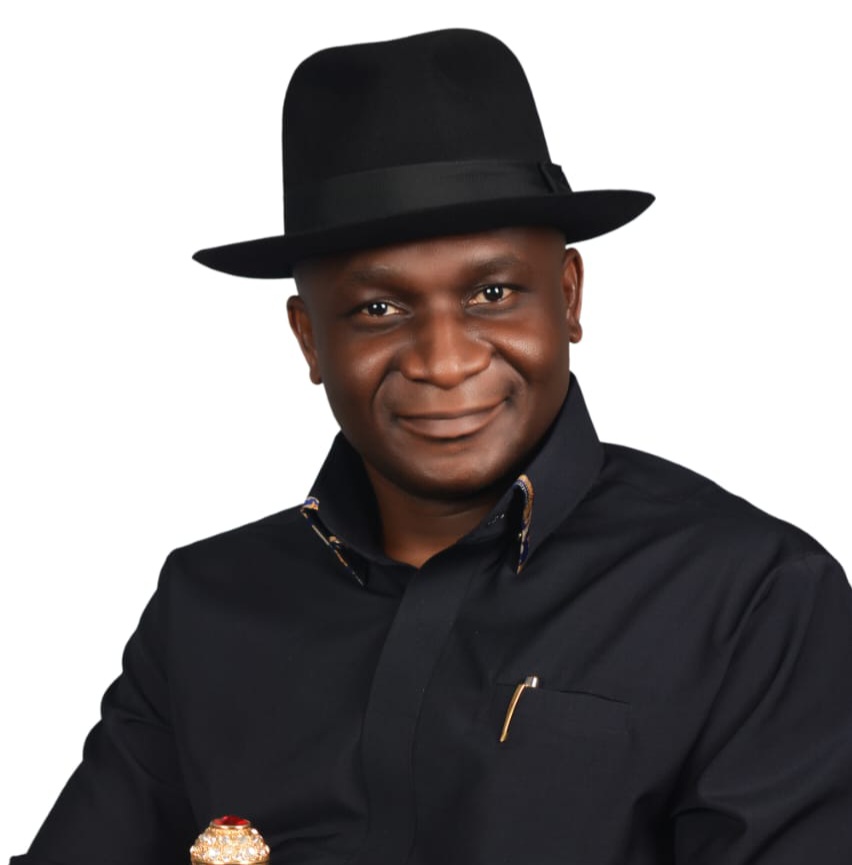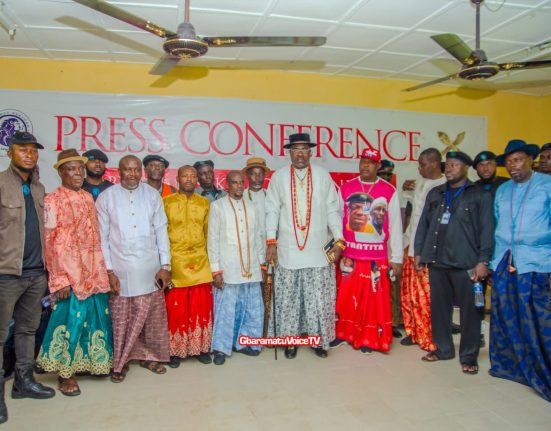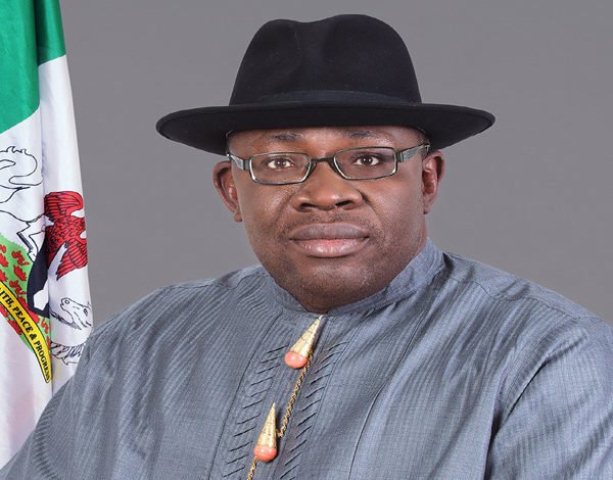Ogbuku as a change agent in Niger Delta development
By Ifeatu Agbu
The rapid development of the Niger Delta region, which is the core mandate of the Niger Delta Development Commission, NDDC, got an impetus when the current Management, led by Dr Samuel Ogbuku, mounted the saddle at the Commission’s headquarters on January 5, 2023.
From day one, Ogbuku and his team were confronted with the daunting challenges of development in the Niger Delta region. However, the challenges spurred them to begin to look for new ways of achieving results. That inexorably led to the decision by the Commission to begin to do things differently.
In charting a new course, the Commission had to use new strategies, which emphasized transparency and accountability.
The new trajectory takes into account the vision of the NDDC, which is to create an enabling environment for the sustainable development of the Niger Delta region. The Management is also guided by the Commission’s mission, which is: “to facilitate the sustainable, even and rapid development of the Niger Delta, into a region that is socially stable, politically peaceful, economically prosperous and ecologically regenerative.”
ALSO READ: Ogbuku takes NDDC to Niger Delta creeks
The paradigm shifts at the NDDC did not come by chance. It came from good leadership. According to General Collin Powell, former Chairman of the US Joint Chief of Staff [1989-93] and the first African American to be appointed Secretary of State, you have to appoint the right calibre of people to deliver good results.
For him, “the organisation doesn’t really accomplish anything. Plans don’t accomplish anything either. Theories of management don’t matter. Endeavours succeed or fail because of the people involved. Only by attracting the best people will you accomplish great deeds.”
The Executive Management team in NDDC today appears to be hitting the right notes. This started with the solid foundation laid during a four-day Board and Management Retreat at the Ibom Icon Hotels and Golf Resort, Uyo, Akwa Ibom State. This set the tone for a new and re-invigorated journey.
Indeed, the management signaled that it would not be business as usual as it would enthrone transparency in its operations and reverse the resource-curse syndrome in the Niger Delta region.
At the end of the retreat, participants resolved that the NDDC should prioritize key sectors that would have huge impact on the standard of living of the people of the Niger Delta, namely: infrastructure, education, health and agriculture; the NDDC should pay particular attention to the security of lives and property and the protection of the poor and weak in the society; the NDDC should improve its youths and women empowerment programmes; the NDDC should consider implementing legacy projects that have the potential to benefit the people of the region, reduce poverty and improve the conditions of living of the people.
The stakeholders resolved to intensify efforts towards fast-tracking the development of the Niger Delta region. Along this line, they agreed to revisit and review the Niger Delta Regional Development Master Plan, which expired in 2020, to provide sustainable focus for the region.
They further resolved: “That the NDDC in its determination to take the region to greater heights shall engage in Public Private partnership arrangements with State Governments, International Oil Companies (IOCs) as well as International Donor Agencies with a view to executing mega projects for the region.”
To truly make a difference, the management adopted new methods to effectively drive sustainable development in the region. Thus, it decided to espouse the Public Private Partnership, PPP, model to provide alternative sources of funding for key development projects and programmes.
Consequently, a Management Committee on Public Private Partnership was constituted by the NDDC on January 18, 2023. The Commission observed that the only outstanding partnership it has entered into since inception was with respect to the construction of the Ogbia-Nembe Road. The 27-kilometre road, which connects 14 different communities of Bayelsa State, was constructed in partnership with Shell Petroleum Development Company, SPDC.
That multi-billion flagship project illustrates the kind of challenges confronting the Niger Delta. It cuts through the mangrove swamps with many bridges and 99 culverts.
To further explore the possibilities presented by a PPP model, the Commission organised a PPP summit in Lagos on April 25. At the Summit, with the theme: “Rewind to Rebirth,” the Commission signed a Memorandum of Understanding, MOU, with a United States-based firm, Atlanta Global Resources Inc., AGRI to build a railway network that will connect the nine states of the Niger Delta region.
The NDDC management had previously engaged the Nigerian National Petroleum Company, NNPC, Limited to propose a partnership for speedy development of the Niger Delta.
The Group Managing Director of NNPC Limited, Mr. Mele Kyari, agreed to co-fund some of NDDC’s projects tailored towards infrastructural development of the Niger Delta region. The partnership overture to the NNPC came on the heels of similar moves to get the hands of the Shell Petroleum Development Company of Nigeria Limited.
Again, the Commission engaged the members of the Oil Producers Trade Section, OPTS, of the Lagos Chamber of Commerce and Industry during their recent meeting in Lagos. According to Ogbuku, the management “recognizes that the OPTS, which embodies the IOCs, is a critical stakeholder of the NDDC, that is second only to the people of the region.”
Obviously, the NDDC alone cannot handle the task of developing the Niger Delta region. The Commission needs the support of all stakeholders to achieve the goal of developing the region. NDDC funds alone cannot fully develop the region. It needs the partnership of IOCs to achieve this.
Apparently, this prompted the management to step up the collaboration with various stakeholders, including the state governments to end the era of duplication of projects and promote harmony.
The NDDC boss noted that it was important to enhance collaboration between state governors, the NDDC, and other critical stakeholders to drive development through the monitoring and execution of regional projects.
Interestingly, steps are already being taken to strengthen the relationship between the Commission and the State Governments of the Niger Delta, to make them partners and not competitors.
These engagements have improved the visibility and broadened the scope of NDDC’s partnerships. In recognition of this fact, Ogbuku said that “stakeholders’ engagements were critical to the commission’s effectiveness. “We have, therefore, met with the civil society groups, traditional rulers and community leaders.
The traditional institution, being a highly revered group, was given due attention. Thus, the management visited the Olu of Warri, Ogiame Atuwatse III, in his palace in Warri, Delta State and the Amanyanabo of Okochiri, King Ateke Michael Tom in his palace in Okochiri, Okrika Local Government Area
To consolidate on the engagements, the management inaugurated a 2024 Budget Committee to interface with stakeholders in the budget process. The committee was charged with identifying the vision of the NDDC as an interventionist agency in order to prioritise the allocation of available resources.
Ogbuku assured that the Commission would produce a budget that would capture the present realities in the region, insisting that the document must have a clear vision. “This way, in implementing the it, there will be proper guidelines and it will not be distorted when it gets to the National Assembly. To achieve this, the NDDC must have a stakeholder’s conference to reach an agreement,” he said.
The NDDC boss maintained that the 2024 NDDC budget will be an inclusive budget that largely accommodates the interests of stakeholders in the Niger Delta region.
He said: “Stakeholders will have an opportunity to tell the NDDC the kind of projects they want in their areas of operations, so that they can be included in the budget. That is the plan for the NDDC budget for 2024. Henceforth, NDDC will capture every stakeholder in its budget; state governments, the IOCs, traditional institutions, everybody should be included in it. It will be an all-inclusive budget of the people of the Niger Delta.”
However, before coming up with the all-inclusive 2024 budget, the Commission had to deal with what the Managing Director described as a dysfunctional situation. “We met a situation where the Commission had no approved budget for 2021 and 2022.” Thankfully, the budgets for the two years, as well as that of 2023 have now been passed by the National Assembly.
With the budget in place, more projects and programmes will begin to roll out. In the light of this, the new concept developed by the Commission to work with the Niger Delta Chamber of Commerce in the training of youths and young entrepreneurs in the Niger Delta region, has every reason to succeed.
The plan, according to the NDDC boss, was to collaborate with the Niger Delta Chamber of Commerce to support Small and Medium Enterprises in the Niger Delta region.
He said: “For the new scheme to be successful, it will revolve around a Niger Delta Chamber of Commerce that will strengthen young entrepreneurs in the region. The goal is to stop a situation where youths will be at home and be receiving stipends. Hence, the Commission is changing its Youth Volunteer programme to Youth Internship Programme where youths will be attached to organisations for one year to learn skills.”
In the area of education, the NDDC under Ogbuku interacted with Vice Chancellors of four universities in the Niger Delta region and the dominant issue on the table was how to begin partnerships that will encourage research to help in finding solutions to some of the problems bedevilling the society.
Ogbuku said that partnering with universities in academic research will make it possible to produce life-saving vaccines, as well as finding lasting solutions for medical and social problems.
The Management also held a meeting with contractors working for the Commission and called for cooperation from them to resolve issues around the burgeoning debt profile of the Commission.
To find a solution, the NDDC leadership says it is willing to accept solutions that will lead to the reduction of the Commission’s debt profile.
As part of the measures taken to address the challenges posed by a huge debt profile, the Commission started reviewing all disilting contracts before payments were made.
Today, the NDDC has sufficiently watered the grounds for public, private partnerships to flourish alongside contributions from stakeholders to bring about economic prosperity, as well as ensure social and political stability in the Niger Delta region.
According to Ogbuku, the NDDC is assuming its rightful position as a vehicle to drive the socio-economic development of Nigeria’s oil-rich region.
Support Quality Journalism in the Niger Delta Region
Join us in our mission to bring development journalism, cultural preservation, and environmental awareness to the forefront. Your contribution makes a difference in the lives of the people of the Niger Delta. Donate today and be a part of the change!








